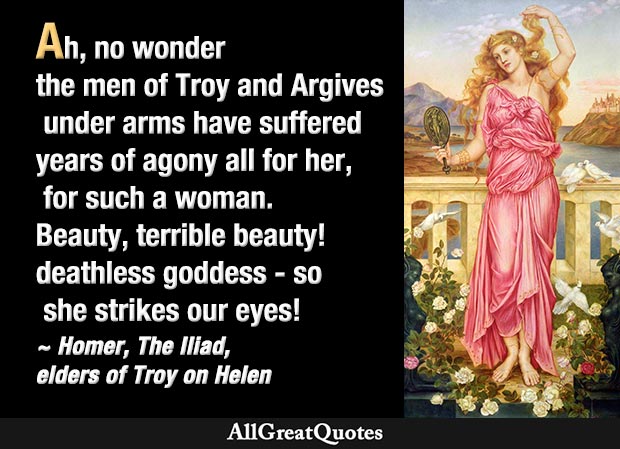
And catching sight of Helen moving along the ramparts,
they murmured one to another, gentle, winged words:
"Who on earth could blame them? Ah, no wonder
the men of Troy and Argives under arms have suffered
years of agony all for her, for such a woman.
Beauty, terrible beauty!
deathless goddess – so she strikes our eyes!"
– Homer
The Iliad, Book 3, lines 187-191. The elders of Troy gaze at Helen and murmer to themselves as they gather at the Scaean Gates to witness the armies prepare for battle below the city walls. They pay tribute to the "terrible beauty" of Helen, the source of all their trouble and a treasure that inspired men to fight in order to possess. This passage is echoed in Irish poet William Butler Yeats’s poem, Easter, 1916: "All changed, changed utterly: A terrible beauty is born." Yeats was writing about the beauty of the dream of Irish independence being born out of the terrible destruction and loss of life in the Easter Rising.
